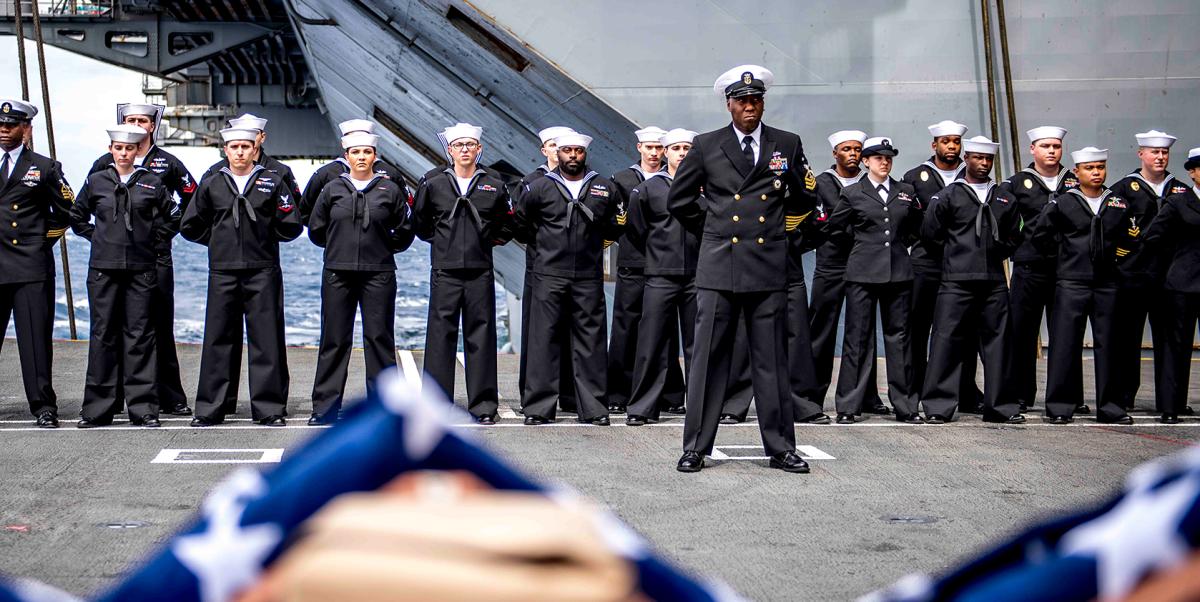In the past few months, a number of readers have contacted us about the topic of diversity and inclusion in our pages. The statement by our Board of Directors and Editorial Board and the winning article of the Diversity and Inclusion Essay Contest, published in the May issue, drew the most attention. Several readers asked, “When the Navy can’t even build a 355-ship fleet, why are you focused on social issues?” Our answer has several parts. First, Proceedings has always included a debate about social issues—even when the operational and strategic problems facing the Sea Services have been daunting. The number of articles and commentaries about race in the 1970s might surprise a lot of readers. The role of women in the military was a prominent theme in our pages from the 1970s through the 2000s, and “Don’t ask, don’t tell” was a big topic for more than a decade.
Second, because this is a debate that impacts the Sea Services, do we want it to play out only in social media (dominated by fractured groups that shout past one another) or in the mainstream media, with its own sharp ideological divides? Should the professional journal of the Sea Services not host this debate, so military members can help shape it?
Last (but no less important), we are publishing on these topics because members of the profession are writing about them. As editors, we do our best to present different sides of the arguments, while also keeping the discussion “in bounds”—respectful, professional, and thoughtful. If someone takes the extreme view that the U.S. military is a racist regime, we are not going to publish that. Likewise, we reject the notion (as some have suggested) that the entire topic is “woke, Marxist dogma.” To those who did not agree with “Sir, No Excuse, Sir,” I draw your attention to the letters we published in the June Comment and Discussion section—and in this issue as well. In one conversation, I asked a long-time member, “Do you want Proceedings to publish only content you agree with?” (He did not.) On a personal level, I would be bored if Proceedings only had content with which I agreed. Enough said on that—for now.
This issue is full of hard-hitting articles on other topics. This year’s Naval Postgraduate School Essay Contest winner is Dr. Britta Hale. Her essay, “Escaping the Innovation Bunker,” is about how the invention of a farm tractor led to creation of the military tank, first used in battle in World War I. It demonstrates the need for interpersonal collaboration to invent and innovate. This month’s American Sea Power Project article is about how the U.S., Imperial Japanese, and Royal navies reacted to the limits imposed by the Washington Naval Treaties. “Strategic Failures Are Often Failures of Imagination,” by Kori Schake, depicts bold experimentation and innovation by the United States and Japan, while the Royal Navy constrained itself unnecessarily. Admiral James Stavridis, U.S. Navy (Retired) writes that “Great Power Competition Requires Theater Deterrence.”
Finally, “The Navy Lacks a Culture of Purpose,” by retired Commander Jim Moses, continues an ongoing debate about the role of—and need for—strategy in the Navy. Drawing from Lieutenant Commander Ryan Hilger and Commander Joel Holwitt’s work in these pages, Moses argues that aspiring officers should be exposed to strategy at a young age, including at the Naval Academy and Naval ROTC.
Next month is our annual focus on the Coast Guard. Until then, enjoy the start of summer, and happy 4th of July to all!








